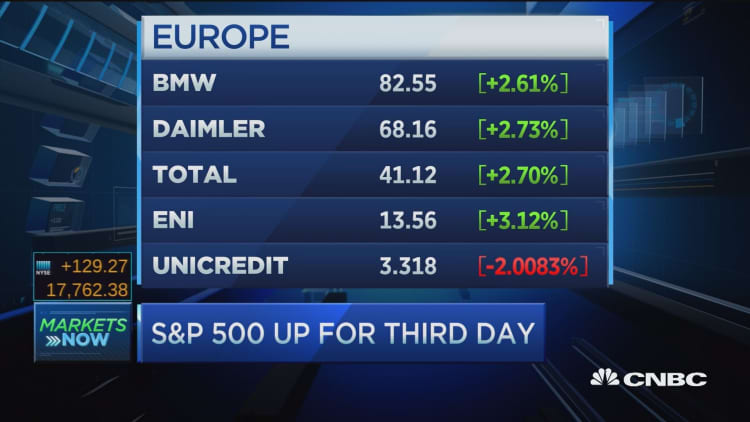



Asian currencies are rallying in the aftermath of U.S. Federal Reserve chair Janet Yellen's dovish comments on Tuesday, sending the greenback down amid a raft of positive data.
The jumps are large: The Australian and New Zealand dollar, which are both commodity-linked currencies, were near their nine-month peaks on Thursday.
The Malaysian ringgit also climbed to a new seven-month high against the U.S. dollar on Thursday; the country is an exporter of oil and natural gas. The country's private consumption is also expected to grow and remain resilient this year while manufactured exports will be supported by the U.S. and a competitive ringgit, Nomura analysts said in a report Wednesday.
"Markets are still feeling the reverberations of Yellen's dovish speech, with the U.S. dollar retreating across the board," said Mizuho Bank's forex strategist, Chang Wei Liang.
Speaking to the Economic Club of New York on Tuesday, Yellen noted in prepared remarks that it was appropriate for policymakers to proceed "cautiously."
She noted recent readings on the strength of the U.S. economy since the beginning of the year have been mixed.
The dovish remarks followed more hawkish comments recently from other Fed members, which had spurred an uptick in concerns that the Fed might increase interest rates at its April meeting.
Yellen's comments, coupled with ultra-loose monetary policies in Japan and Europe, doused expectations of any aggressive interest rate hikes this year and fueled a rally in Asian equities markets.
Currencies are still benefitting from the comments as well as a recent rise in commodities' prices, including a rise in oil prices on the back of expectations of an OPEC production freeze.
Among other currencies gaining ground, hit a four-month highagainst the U.S. dollar on Thursday as industrial output rose a better-than-expected 2.4 percent from a year ago in February.
The Japanese yen, meanwhile, continued to hold strong around the 112 to 113 level against the dollar.
"The game changer for me is Yellen was extremely specific...mentioning the currency … saying the dollar cannot go higher. From a currency perspective, that's pretty important…It was a really explicit (message)," Jesper Bargmann, Asian head of trading for Nordea Markets told CNBC's "Street Signs".
Despite better newsflow, BNP Paribas said in a report Thursday that there is "no rush to buy the U.S. dollar."
"Our economists continue to see no Fed hikes through 2017, consistent with their growth forecast that is both below the Fed's view and below market consensus. Against this backdrop, we don't see the market re-establishing a long U.S. dollar trade any time soon," said the bank.
Based on positioning analysis, the house is expecting "moderate" U.S. dollar weakness, with euro to U.S. dollar climbing to 1.16 by the second quarter from 1.13 now.



